FOCUS, Crossley: Rooftop bars offer great views of Holy City
COMMENTARY, Brack: S.C. leaders suggest history, fiction titles for summer reading
IN THE SPOTLIGHT: Charleston RiverDogs
PALMETTO POEM, Gold: IF, THEN
GOOD NEWS: Red Cross has emergency need for more blood
WHAT WE LOVE: Tell us what you love about the Lowcountry
FEEDBACK: Two say column on lynching markers was right on point
MYSTERY PHOTO: Tall structure may be a clue
S.C. ENCYCLOPEDIA: Josephine Pinckney
CALENDAR, Aug. 6+: Art, tours, engagement and more
FOCUSFOCUS: Rooftop bars offer great views of Holy City
By Gary Crossley, special to Charleston Currents | There has been an explosion of new rooftop bars and restaurants in Charleston in the past few years.
Here is an alphabetical list with the name, hotel/restaurant, and location of 17 current options, with more planned in the next couple of years. Enjoy this list and the beautiful views of the Charleston area, compliments of LovetoDineOut.com mobile app, Facebook page, and web-blog.
- Aqua Terrace, Marriott, 170 Lockwood Drive;
- Caffe e Vino, The Skinny Dip, 345 King Street;
- Carolina Ale House Bar, Carolina Ale House, 145 Calhoun Street;
- Cocktail Club Terrace. The Cocktail Club, 479 King Street, #200;
- Eleve Rooftop Lounge, Grand Bohemian, 55 Wentworth Street;
- 45 Waterside, Hilton Garden Inn, 45 Lockwood Drive;
- Harborview Lounge, Holiday Inn, 301 Savannah Highway;
- HarbourView Rooftop, HarbourView Inn, 2 Vendue Range;
- Henry’s Deck Bar, Henry’s on the Market, 54 North Market Street;
- The Patio at Burwell’s, Burwell’s Stone Fire Grill, 14 North Market Street;
- Pavilion Bar, Market Pavilion, 225 East Bay Street;
- Pour Taproom, Historic District Hyatt, 560 King Street;
- Red’s Ice House, Red’s Restaurant Shem Creek, 98 Church Street;
- The Rooftop at Vendue, The Vendue Inn, 19 Vendue Range;
- Stars Rooftop, Stars Restaurant/Grill, 494 King Street;
- Uptown Social, Rooftop Deck Bar, 587 King Street; and
- The Watch, Restoration Hotel, 79 Wentworth Street
One rooftop venue is still pending city approval, The Dewberry. The Dewberry Rooftop on top of The Dewberry Charleston at 334 Meeting Street is currently only open Thursday – Saturday from 5 p.m. to 9 p.m. for hotel guests.
West Ashley entrepreneur Gary Crossley has a passion for eating out, which led to a multimedia project, LoveToDineOut.com.
- Have a comment? Send to: editor@charlestoncurrents.com
BRACK: S.C. leaders suggest history, fiction titles for summer reading
By Andy Brack, editor and publisher | Summertime and vacation conjure images of spending time with a light novel – a “beach read” – to while away the time and recharge the brain’s batteries.
But what if someone wanted to read something a little more substantive to learn about South Carolina’s history or politics? Or read a great novel that inspires?
 At the top of the history list should be “The Palmetto State: The Making of Modern South Carolina,” a 2009 examination of modern South Carolina history by Jack Bass and Scott Poole that gives context to everything going on today. It’s well-written, not too long and easy to finish in a week.
At the top of the history list should be “The Palmetto State: The Making of Modern South Carolina,” a 2009 examination of modern South Carolina history by Jack Bass and Scott Poole that gives context to everything going on today. It’s well-written, not too long and easy to finish in a week.
“It’s a history book with the theme of politics throughout,” reflects College of Charleston political science professor Gibbs Knotts, who also recommended the book. “My favorite chapter is chapter 11, ‘The Republican Rise.’ The transformation from the solid Democratic South to the reliably Republican South is one of the most consequential political changes in American history.”
If you’re looking for more detail, there’s a 716-page brick of a book, Walter Edgar’s comprehensive and outstanding “South Carolina: A History” published in 1998.
“It is my favorite for history and politics,” Gov. Henry McMaster said this week, adding “Dan Hollis’ short, out-of-print ‘A Brief History of South Carolina’ is an excellent introduction.”
Bo Moore, dean of Humanities and Social Sciences at The Citadel, also recommended Edgar’s history: “The single best, one-volume account of the full-sweep of the South Carolina experience.”
Two readers endorsed a new book, “Denmark Vesey’s Garden: Slavery and Memory in the Cradle of the Confederacy,” by Ethan J. Kytle and Blain Roberts. The New York Times called the book, set in Charleston, a “fascinating and important new historical study.”
Michael Boulware Moore, head of the soon-to-be-built International African American Museum, said he is currently reading the work. “It’s a clear and unflinching look at Charleston, ‘the capital of slavery.’ and the histories that that institution spawned.” Fellow Charlestonian Jennet Robinson Alterman, chair of SC WREN, also recommended the book.
U.S. Rep. Jim Clyburn, D-S.C., pointed to his 2015 memoir, “Blessed Experiences: Genuinely Southern, Proudly Black.” He said: “Blessed Experiences was intended to be a primer for young people interested in politics,” adding that Frank E. Jordan Jr.’s 1966 “The Primary State” on the history of the state’s Democratic Party from 1896 to 1962 might be a good first history read.
Longtime Columbia public relations guru Bud Ferillo suggested Christopher Dickey’s 2015 tome, “Our Man in Charleston: Britain’s Secret Agent in the Civil War.” Ferillo called it “a brilliant and exciting history of the anti-slavery British consul general who helped, at great personal risk, keep Britain from backing the Confederacy to continue the cotton supply.”
University of South Carolina President Harris Pastides pointed to “Slaves in the Family,” a modern classic by South Carolina’s Edward Ball. A bestseller from 1998, it won the National Book Award and launched Ball’s career. Kirkus Reviews noted, “The former Village Voice columnist displays his journalistic moxie wading through the voluminous written record (10,000 pages of family papers spanning four centuries, National Archives documents, census reports, and more) to flesh out the family character and track down slave descendants.”
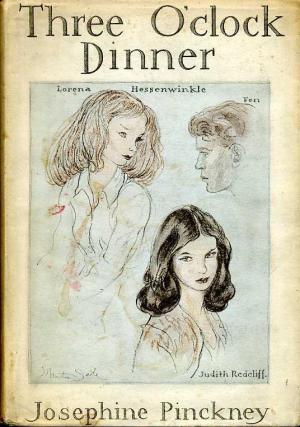 But what if you want something about South Carolina, but lighter and still serious?
But what if you want something about South Carolina, but lighter and still serious?
Several people recommended novels by Pat Conroy, such as “The Prince of Tides” and “Beach Music.” S.C. Rep. Bill Herbkersman, R-S.C., said “The Great Santini” is his favorite novel of all time because “we can all feel a little of us in that book.”
“Conroy captures the Lowcountry,” Furman professor Danielle Vinson told us. She also recommended Sue Monk Kidd’s “The Secret Life of Bees” as a South Carolina novel with oomph.
Conservation Voters of South Carolina Executive Director John Tynan of Columbia, Moore and Knotts recommended novels by Ron Rash such as “Saints at the River.”
Robinson and Charleston food author Nathalie Dupree suggested an oldie, but goodie, “Three O’clock Dinner” by Josephine Pinckney.
And Ferillo reminded us not to forget a great beach read from the beach that is just plain good: “Sullivan’s Island,” by Dorothea Benton Frank.
What are your recommendations?
- Have a comment? Send to: editor@charlestoncurrents.com
SPOTLIGHT: Charleston RiverDogs
 The public spiritedness of our underwriters allows us to bring Charleston Currents to you at no cost. This issue’s featured underwriter is the Charleston RiverDogs, whose ballplayers had a great regular season.
The public spiritedness of our underwriters allows us to bring Charleston Currents to you at no cost. This issue’s featured underwriter is the Charleston RiverDogs, whose ballplayers had a great regular season.
The club, in town for home games from Aug. 7 to Aug. 13, celebrates its 25th season this year (that’s 175 years in “Dog” years!! Last year, the team had 77 wins and made its second consecutive postseason appearance in the playoffs. While the season is now over, it’s not long before the 2018 starts.
The Lowcountry’s leader in sports entertainment, Charleston RiverDogs baseball is an attractive, affordable medium for your group or business. The RiverDogs develop the next major league stars for the 27-time World Champion New York Yankees at one of the finest ballparks in Minor League Baseball — Joseph P. Riley, Jr. Park.
Three short words sum up the everyday approach taken by the Charleston RiverDogs front office. The brainchild of club President Emeritus Mike Veeck, the nine-letter phrase “Fun Is Good” is meant to be a guideline and daily reminder of how employees should approach their jobs and in turn capture the imagination of the fans to turn them into repeat customers.
- Visit the ‘Dogs online at: RiverDogs.com
POEM: IF, THEN
By Ed Gold, special to Charleston Currents
![]() If two red-tailed hawks nest in your tree,
If two red-tailed hawks nest in your tree,
then call your sister and tell her to sell the Studebaker.
If one cloud breaks off and fights the current,
then name your daughter Linoleum.
If a cardinal chases a bluejay from your feeder,
then delete your brother’s number from your phone.
If your sister calls back and refuses to sell,
then place three ice cubes around the orchid’s stalk.
If your daughter doesn’t like her name,
then change your will and give her the Studebaker.
If the bluejay pecks the cardinal in the head,
then put your brother back on speed dial.
If you don’t forget the cubes,
then the cloud may float back into formation.
If you can remember where the hawks used to nest,
then the orchid may bloom again next year.
Charleston resident Ed Gold has a chapbook, Owl, and poems in the New York Quarterly, Kakalak, Window Cat Press, Kansas Quarterly, Cimarron Review, Cyclamens and Swords, Poet Lore, Gargoyle, Rat’s Ass Review, Passager and many others. A native of Baltimore, Gold taught at the University of Maryland for 15 years and is now a writer, editor and writing trainer for various government agencies and large corporations. In the spring of 2015, Gold won the Kinloch Rivers Memorial Award from the Poetry Society of South Carolina. Gold lives in Charleston with his wife, Amy Robinson.
GOOD NEWSNEWS BRIEFS: Red Cross has emergency need for more blood
Staff reports | While thousands of people have responded to an emergency call by the American Red Cross for blood and platelet donations, there continues to be an emergency need for donors of all blood types, especially type O, to give now to address a severe blood shortage.
According to a press release, Red Cross blood donations are being distributed to hospitals faster than they are coming in, and right now there is less than a five-day blood supply on hand. The Red Cross strives to keep a five-day supply of blood to meet the needs of patients and to be prepared for emergencies that require significant volumes of donated blood products.
“Patients don’t get a summer break from the need for lifesaving treatments, so it is critical that hospitals have access to blood products each and every day,” said Patrick Lamontagne of the South Carolina Blood Services Region. “We sincerely appreciate those who have responded to the call to help save lives, but the emergency need remains. Those who haven’t rolled up a sleeve to give are urged to do so today.”
There is a particular need for type O blood, which plays an important role in ongoing patient care and emergencies. Type O positive is the most transfused blood type and can be given to patients with any Rh-positive blood type. Type O negative is the universal blood type and can be given to any patient. It’s what emergency room personnel reach for when there is no time to determine the blood type of patients in the most serious situations.
In thanks, all those who come to donate blood or platelets through Aug. 30 will receive a $5 Amazon.com Gift Card via email. (Restrictions apply; see amazon.com/gc-legal. More information and details are available at RedCrossBlood.org/Together.)
Donors of all blood types are urged to make an appointment at one of many area blood drives to give now using the free American Red Cross Blood Donor App, by visiting RedCrossBlood.org or by calling 1-800-RED CROSS (1-800-733-2767).
In other Good News:
New aquatics center. The city of North Charleston and Dorchester County School District Two will break ground 9 a.m. Aug. 8 on a new 53,00-square-foot aquatics center. The $22.5 million facility, which will be built next to Fort Dorchester High School on Patriot Boulevard in North Charleston, is expected to be finished by late next year, according to a press release.
More airport traffic. More than 2.1 million people flew in and out of Charleston International Airport during the first six months of 2018 – a 10 percent increase over the same six months in 2017. “We knocked it out of the park in June,” Paul G. Campbell Jr., executive director and CEO of the Charleston County Aviation Authority, said in a press release.
Clyburn gets nod. U.S. Rep. James E. Clyburn, a Democrat representing South Carolina’s 6th congressional district, last week was named on a shortlist of black Democratic House members that could be the first black Speaker of the House. Clyburn has served in Congress since 1993 and has served as House Assistant Minority Leader since 2011. Read more here.
Revolutionary research. The next time you’re doing some Revolutionary War research, you may be able to do so from the comfort of your own home. S.C. Department of Archives and History has digitized some of the most popular Revolutionary War records and made them available online. Access the online records here.
Dropout rates. Charleston County is mentioned in Lindsay Street’s Friday news story by sister publication Statehouse Report on lawmakers seeking a way to lower the high school dropout rate, which slightly ticked up in the most recent annual evaluation. One idea: Raising the age that students can legally drop out from 17 to 18. Read more.
WHAT WE LOVETell us what you love about the Lowcountry
![]() Send a short comment – 100 words to 150 words – that describes something you really enjoy about the Lowcountry. It can be big or small. It can be a place, a thing or something you see. It might the bakery where you get a morning croissant or a business or government entity doing a good job. We’ll highlight your entry in a coming issue of Charleston Currents. We look forward to hearing from you.
Send a short comment – 100 words to 150 words – that describes something you really enjoy about the Lowcountry. It can be big or small. It can be a place, a thing or something you see. It might the bakery where you get a morning croissant or a business or government entity doing a good job. We’ll highlight your entry in a coming issue of Charleston Currents. We look forward to hearing from you.
Two say column on lynching markers was right on point
To the editor:
![]() Your piece [Brack: Markers needed to remember victims of S.C. lynchings] was excellent and right on point!
Your piece [Brack: Markers needed to remember victims of S.C. lynchings] was excellent and right on point!
I had the opportunity to visit the Legacy Museum and Memorial last Thursday with the Rev. Nelson B. Rivers, III and other Charlestonians. We, too, wondered, and asked, why there were no memorials for Charleston County, and were told the same thing you learned — EJI {Equal Justice Initiative) wants to have sufficient documentation of the acts of terror. Rev. Rivers has indicated that he will pursue information that can be documented regarding African Americans who were lynched or murdered as a result of terrorism in Charleston County.
Thank you for the excellent article and the recommendation that historical markers be erected; however, I think statutes of those who were instrumental in the struggle for civil and human rights would be even more appropriate. Keep up the good work!
— Carolyn E. Lecque, North Charleston, S.C.
To the editor:
My mother and I just visited the Legacy Museum and Memorial for Peace and Justice. The experience was beyond words, definitely very moving and emotional.
One of the main talking points of our group was the fact that while there were documented lynchings in South Carolina, there were none in Charleston. We had the opportunity to sit and speak a couple of the attorneys who work with the organization. They explained that first, they have to be presented with valid information and then have to get it verified (as you stated in your article). The strange thing is they’ve never received anything from/about Charleston.
Your article was very timely given my trip to Montgomery was last week. Thank you for your consciousness of the continued struggle of Charleston accepting the totality of it’s history, the good and bad.
— Melanie Collins, North Charleston, S.C.
- Send us a letter: We love hearing from readers. Comments are limited to 250 words or less. Please include your name and contact information. Send your letters to: editor@charlestoncurrents.com. | Read our feedback policy.
The tall structure might be a clue
There’s a clue in the tall structure that’s staring you in the face. So where is this building … and what is it? Send your guess to: editor@charlestoncurrents.com. And don’t forget to include your name and the town in which you live.
Last issue’s mystery
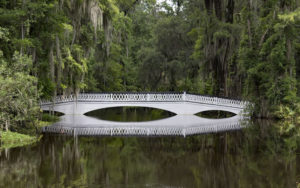 The July 30 mystery was easy for lots of folks who knew it to be the romantic bridge at Magnolia Plantation and Gardens.
The July 30 mystery was easy for lots of folks who knew it to be the romantic bridge at Magnolia Plantation and Gardens.
Congratulations to this week’s photo sleuths: Steve Yetman of Charleston; Marnie Huger of Richmond, Va.; George Graf of Palmyra, Va.; Bill Segars of Hartsville, S.C.; Chris Brooks of Mount Pleasant; David Brown of Daniel Island; Archie Burkel of James Island; and Kristina Wheeler of West Ashley.
Burkel added the bridge is “not only one of the most popular photo ops for a walk through the Gardens, but one of the most popular photo ops for a bride and groom.”
- Send us a mystery: If you have a photo that you believe will stump readers, send it along (but make sure to tell us what it is because it may stump us too!) Send it along to editor@charlestoncurrents.com.
HISTORY: Josephine Pinckney
S.C. Encyclopedia | Poet, novelist and civic leader Josephine Pinckney was born on January 25, 1895, in Charleston into a family long prominent in the state’s history. She was a direct descendant of Eliza Lucas Pinckney and Governor Thomas Pinckney. Her parents were Thomas Pinckney, one of South Carolina’s last great rice planters, and Camilla Scott of Virginia. In 1912 she graduated from Ashley Hall School, where she helped establish a literary magazine, and later attended the College of Charleston, Radcliffe College, and Columbia University. She received an honorary degree from the College of Charleston in 1935 and was named an honorary member of the William and Mary Chapter of Phi Beta Kappa in 1934. She received numerous honors for her writing, including the Southern Authors Award in 1946.
Pinckney played a key role in the literary revival that swept through the South after World War I. She worked closely with DuBose Heyward, Hervey Allen, and John Bennett in founding the Poetry Society of South Carolina in 1920. During the following decade, Pinckney emerged as a poet of national reputation when her work, often evocative eulogies to a vanishing way of southern life, appeared in influential journals such as the Saturday Review of Literature and Poetry, as well as in numerous anthologies. Her only book of poems, Sea-Drinking Cities (1927), received praise from Donald Davidson for “a luxuriance of phrase, a quiet humor controlling deep emotion.”
Pinckney participated in other aspects of the Charleston Renaissance through her dedicated involvement in local cultural institutions, such as the Carolina Art Association, the Charleston Museum, and Dock Street Theatre. Active in the Society for the Preservation of Spirituals from its inception in 1922, Pinckney helped with the transcriptions and musical annotations for the African American songs included in The Carolina Lowcountry (1931). She also worked quietly behind the scenes of the historic preservation movement in Charleston and was posthumously honored by the American Scenic and Historic Preservation Society for the manner in which she “tactfully and persuasively, firmly and wisely” helped to restore the city’s neighborhoods and notable buildings.
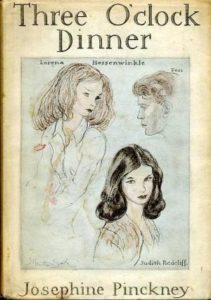 During the 1930s Pinckney embraced a modernist sensibility and turned her writing talents to prose. The Virginia Quarterly Review published her two short stories “They Shall Return as Strangers” (1934) and “The Marchant of London and the Treacherous Don” (1936). Her essay “Bulwarks against Change,” which appeared in Culture in the South, edited by W. T. Couch (1934), remains an insightful commentary on the evolving South. In 1941 Pinckney published her first novel, Hilton Head, followed by the best-selling social comedy Three O’clock Dinner (1945), which made her one of America’s best-known women fiction writers. Her third novel, Great Mischief (1948), a Book-of-the-Month Club selection, was followed by My Son and Foe (1952) and Splendid in Ashes (1958). Her editor at Viking Press remembered Pinckney “more warmly” than any other of his distinguished writers of the day for the “charm and grace of her character, the intelligence of her insights into people, the delights of her Charleston ambiance tempered by her cosmopolitan ways and her irony.”
During the 1930s Pinckney embraced a modernist sensibility and turned her writing talents to prose. The Virginia Quarterly Review published her two short stories “They Shall Return as Strangers” (1934) and “The Marchant of London and the Treacherous Don” (1936). Her essay “Bulwarks against Change,” which appeared in Culture in the South, edited by W. T. Couch (1934), remains an insightful commentary on the evolving South. In 1941 Pinckney published her first novel, Hilton Head, followed by the best-selling social comedy Three O’clock Dinner (1945), which made her one of America’s best-known women fiction writers. Her third novel, Great Mischief (1948), a Book-of-the-Month Club selection, was followed by My Son and Foe (1952) and Splendid in Ashes (1958). Her editor at Viking Press remembered Pinckney “more warmly” than any other of his distinguished writers of the day for the “charm and grace of her character, the intelligence of her insights into people, the delights of her Charleston ambiance tempered by her cosmopolitan ways and her irony.”
Although Pinckney traveled widely, she maintained a home in Charleston and her family plantation on the Santee River, El Dorado. Josephine Pinckney died on October 4, 1957, and was buried in Magnolia Cemetery, Charleston. In 1988, she was posthumously inducted into the South Carolina Academy of Authors.
— Excerpted from an entry by Barbara L. Bellows. To read more about this or 2,000 other entries about South Carolina, check out The South Carolina Encyclopedia, published in 2006 by USC Press. (Information used by permission.)
ON THE CALENDARCALENDAR, Aug. 6+: Art, tours, engagement and more
![]() Expressive abstracts: Through Aug. 31, North Charleston City Gallery, 5001 Coliseum Drive, North Charleston. The city’s cultural arts department will welcome a group of works by 35 female abstract expressionist artists who come from across the country. Two thirds of the group will present new mixed media work in the exhibition called “Inside Out: Expressing our Inner Voices.” More info.
Expressive abstracts: Through Aug. 31, North Charleston City Gallery, 5001 Coliseum Drive, North Charleston. The city’s cultural arts department will welcome a group of works by 35 female abstract expressionist artists who come from across the country. Two thirds of the group will present new mixed media work in the exhibition called “Inside Out: Expressing our Inner Voices.” More info.
Historic Charleston house tours. 10:30 a.m. to 12:30 p.m., Aug. 7 at the Nathaniel Russel House, 51 Meeting St., Charleston, and Aug. 9 at the Aiken-Rhett House, 48 Elizabeth St. To learn more about the event and fees, click here.
Civic engagement: 8:30 a.m. to 10 a.m., Aug. 11, Schoolhouse, Magnolia Road, Charleston. The city of Charleston will hold its second annual civic engagement workshop, “I’m a resident, now what?” It provides an opportunity for residents to learn about city operations and engage directly with staff members and neighbors. Registration is required, as space is limited. Register by August 6 at http://www.charleston-sc.gov/neighborhoods.
TEDxCharleston: The annual day of ideas in Charleston is accepting applications through August 27 for participants to speak or perform on issues related to the theme for April 10, 2019: Currents. The theme will explore “What trends are rising to the surface? How are science, art, culture and conversation making waves and evolving to meet the needs of future communities? What changes are happening that parallel and challenge our history?” Learn more |
sign up.
Early morning bird walks at Caw Caw: 8:30 a.m. every Wednesday and Saturday, Caw Caw Interpretive Center, Ravenel. You can learn about habitats and birds, butterflies and other organisms in this two-hour session. Registration not required, but participants are to be 15 and up. $10 per person or free to Gold Pass holders. More: http://www.CharlestonCountyParks.com.
AREA FARMERS MARKETS
SATURDAYS: The Charleston Farmers Market, is back in action from 8 a.m. to 2 p.m. every Saturday through Nov. 24 at Marion Square. A holiday market will be open Dec. 1, 2, 8. 9, 15 and 16.
SATURDAYS: Johns Island Farmers Market operates each Saturday from 9:30 a.m. to 1:30 p.m. year-round with more than 50 local farmers and vendors, food trucks, music and more. The market is located on the campus of Charleston Collegiate School, 2024 Academy Road, Johns Island.
SATURDAYS: The Town Market on James Island are again open. Open 9 a.m. to 1 p.m. every Saturday at the James Island Youth Soccer Club, 871 Fort Johnson Road, James Island.
TUESDAYS: The Town of Mount Pleasant’s Farmers Market is every Tuesday from 3:30 p.m. to 7 p.m. in the market pavilion at Moultrie Middle School, 645 Coleman Blvd, in Mount Pleasant.
WEDNESDAYS. The West Ashley Farmers Market, 55 Sycamore Ave., is open every Wednesday from 3 p.m. to 7 p.m. in Ackerman Park. More.
- If you have an event to list on our calendar, please send it to charlestoncurrents@gmail.com for consideration. The calendar is updated weekly on Mondays.
OUR UNDERWRITERS
Charleston Currents is an underwriter-supported weekly online journal of good news about the Charleston area and Lowcountry of South Carolina.
- Meet our underwriters
- To learn more about how your organization or business can benefit, click here to contact us. Or give us a holler on the phone at: 843.670.3996.
OUR TEAM
Charleston Currents offers insightful community comment and good news on events each week. It cuts through the information clutter to offer the best of what’s happening locally.
- Mailing address: O. Box. 22261 | Charleston, SC 29413
- Phone: 670.3996
Charleston Currents is provided to you weekly by:
- Editor and publisher: Andy Brack, 843.670.3996
- Contributing photographer: Michael Kaynard
- Contributing editor, careers: Ben Fanning
- Contributing editor, common good, Fred Palm
- Contributing editor, money: Kyra Morris
- Contributing editor, Palmetto Poem: Marjory Wentworth
SUBSCRIBE FOR FREE
Subscriptions to Charleston Currents are free.
- Unsubscribe. We don’t want to lose you as a reader of Charleston Currents, but if you must unsubscribe, you will have to do it through the email edition you receive. Just go to the bottom of any of your weekly newsletters and click the “unsubscribe” function. If that doesn’t work, please send us an email with the word “unsubscribe” in the subject line.
© 2008-2018, Statehouse Report, LLC. All rights reserved. Charleston Currents is published every Monday by Statehouse Report LLC, PO Box 22261, Charleston, SC 29413.


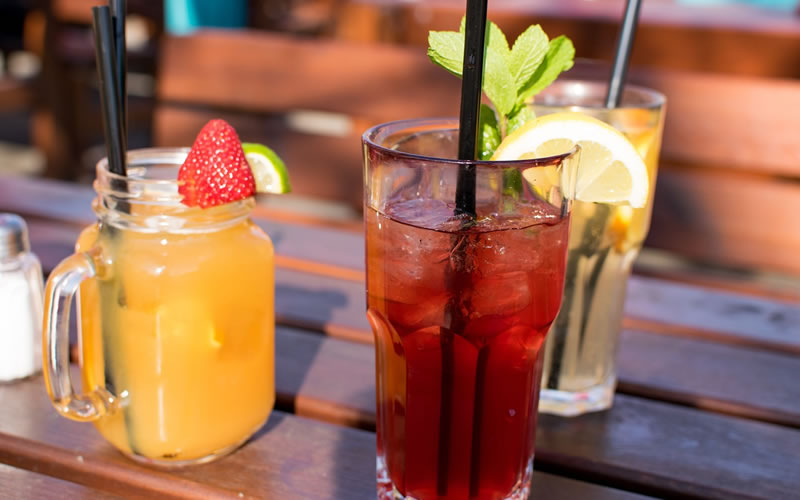


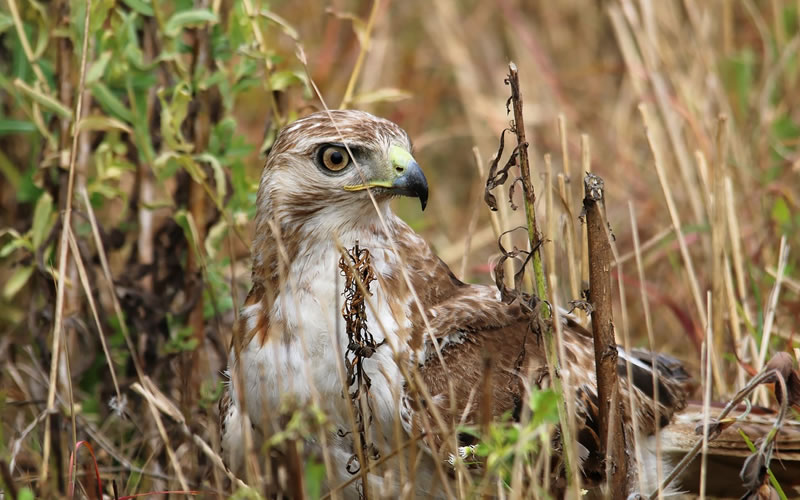
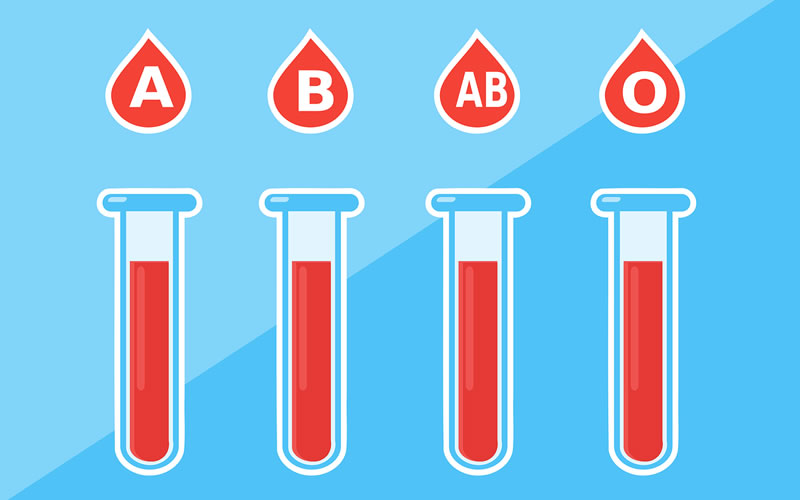
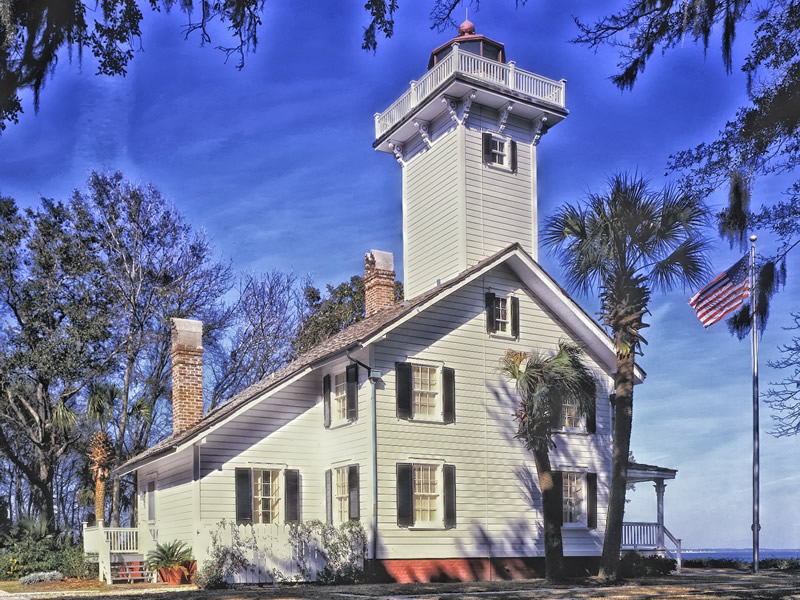
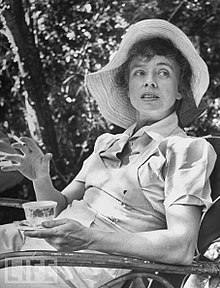

 We Can Do Better, South Carolina!
We Can Do Better, South Carolina!
























